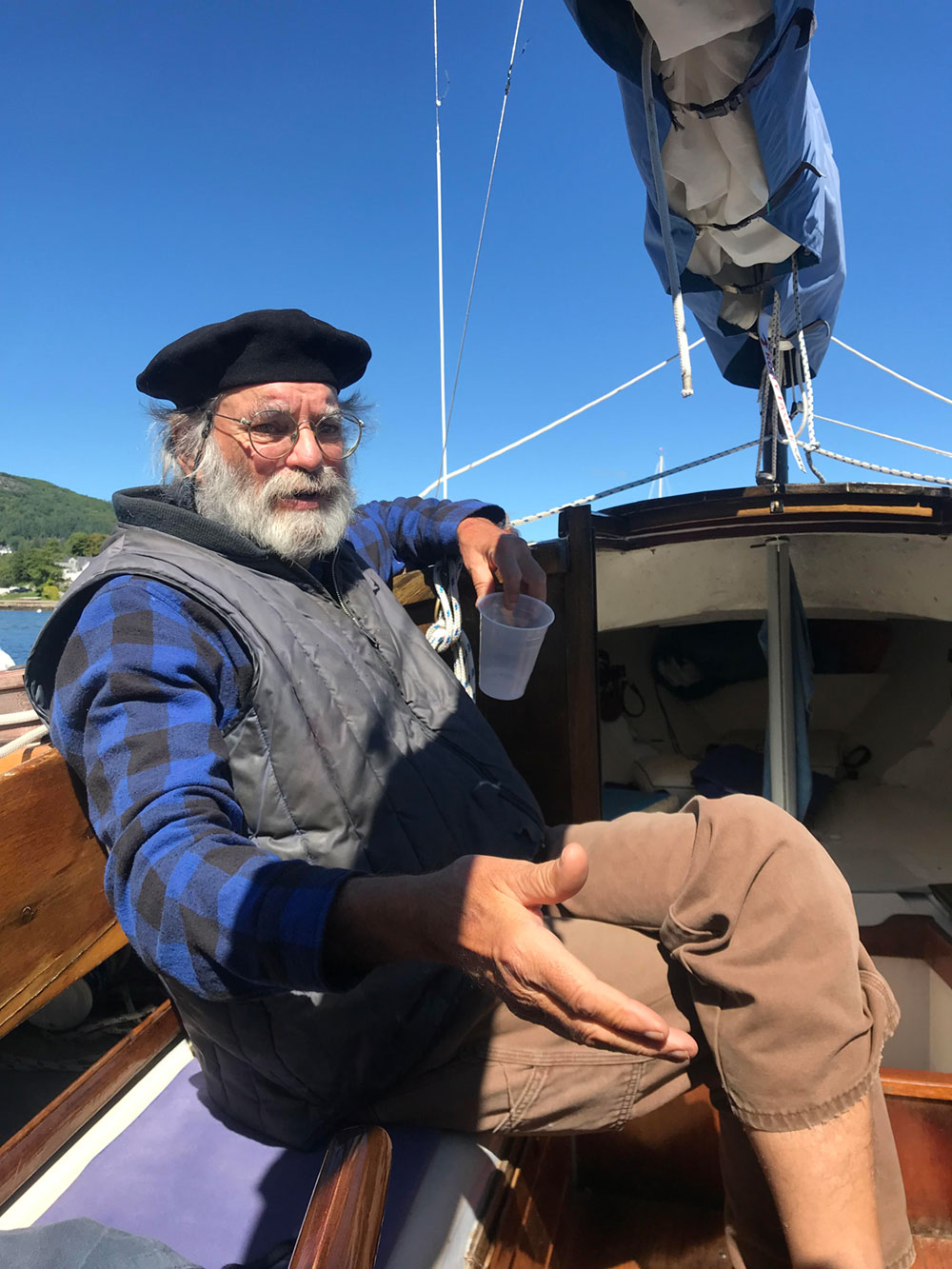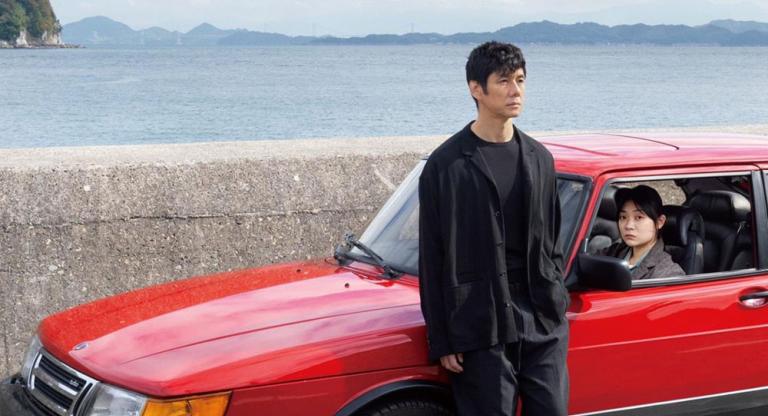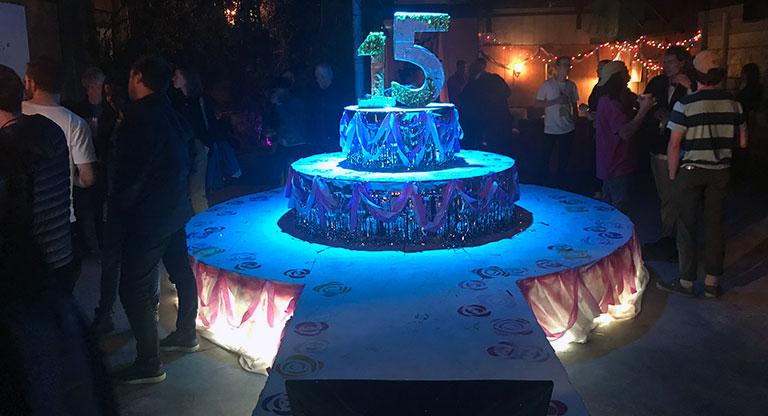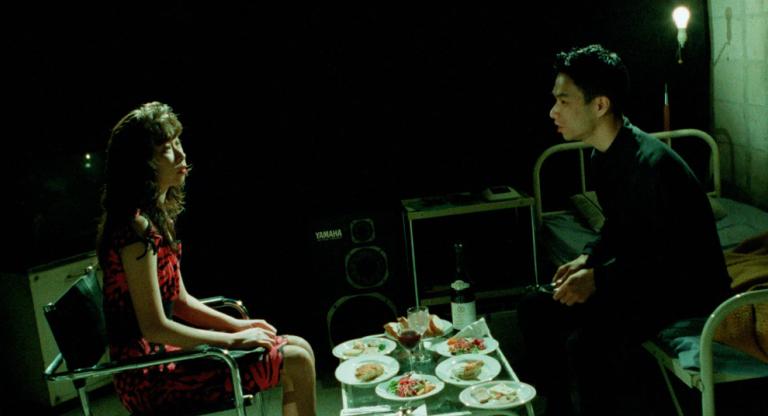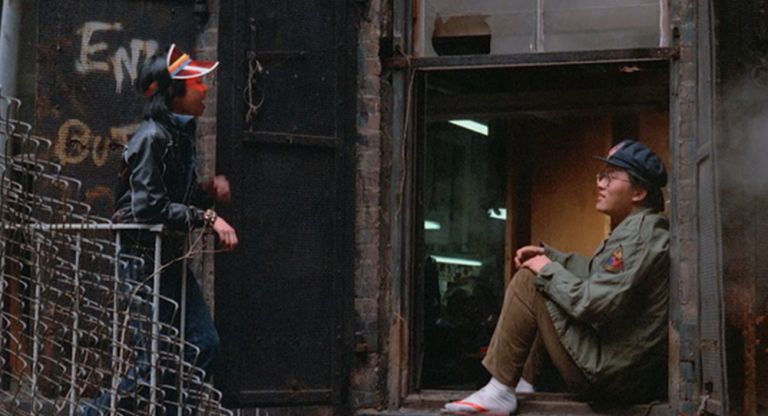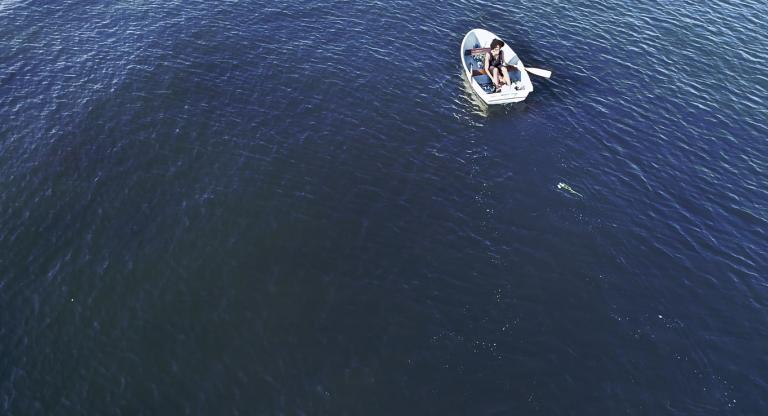We were told to pack rain gear, as the summer had been exceptionally wet in Mid-Coast Maine. We were also asked to bring proof of vaccination, and told that additional precautions would be in place. With these conditions in mind, I departed for Camden with a certain by-now-familiar weariness. The indoor venues would be capped at half-capacity, but the attendees would invariably include aloof boomers with their masks tucked away in their purses. A question nagged at me as I crossed Connecticut and Massachusetts: is it worth it? Sitting in a COVID hotbox watching a documentary that I could just as easily stream from relative safety? Almost every film that I had reserved tickets for was in the Strand Theatre, a charming, almost 100-year-old moviehouse in nearby Rockland. (The Camden International Film Festival only partially takes place in Camden; many events are in Rockland and Rockport.) This meant that I would spend the next four days sitting in the dark and praying that the theater’s enclosed air wasn’t saturated with Delta. It’s a calculation that has become common for people weighing whether or not to continue physically going to the movies. For someone who treasures the communal experience of the cinema, it’s a tricky ethical question. Luckily I wouldn’t have to ponder it too much on opening night, because I was going to the fest’s solitary outdoor venue, the Shotwell Drive-In in Rockport.
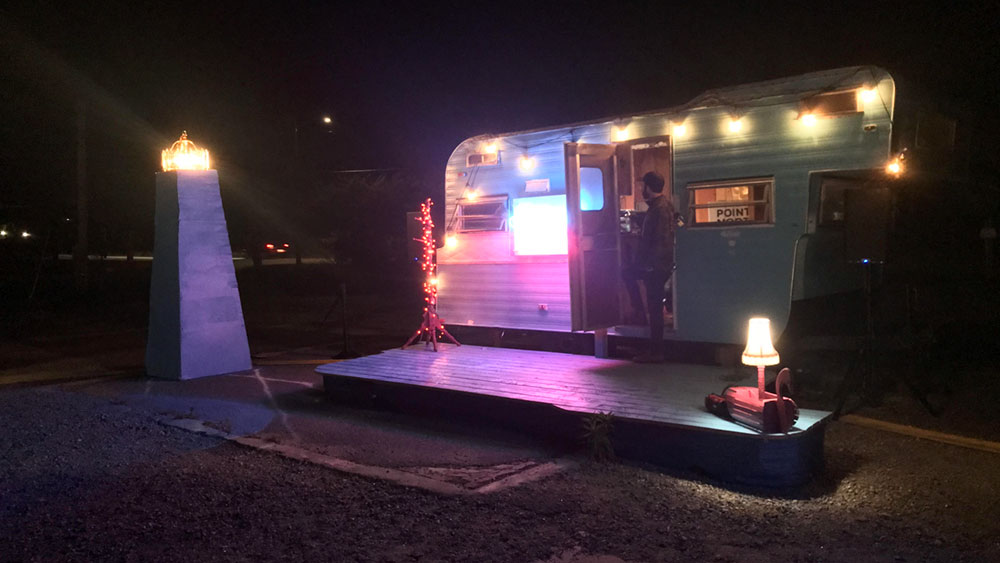
A drive-in is essentially an import packaged for domestic consumption, an originally French artform shoehorned into a distinctly American form of spectatorship. Fitting, then, that the opening night film was a National Geographic documentary about Jacques Cousteau. This was a man riven with contradictions — doing surveying work for British Petroleum in the 1950s to fund his explorations of pristine (but soon to be dead) coral reefs, too much of a workaholic to spend any time at home with his kids but inseparable from them when on his ship — but director Liz Garbus recounts his life as a linear story of boundless curiosity overcoming unfavorable odds. Still, I learned something new, namely that Cousteau, together with engineer Émile Gagnan, developed and patented the first viable SCUBA technology, which they christened the Aqua-Lung.
The next morning I caught Angelo Madsen Minax’s highly personal North by Current, a tender but conflicted portrait of the filmmaker’s family. At one point, Madsen (behind the camera) is talking to his sister about a previous occasion when she shattered all her front teeth and needed oral surgery. Madsen is not satisfied with his sister’s earlier, evasive account of how her teeth broke, and now, years later, she reveals that her abusive husband did it. So much goes unspoken in Madsen’s family, like in many families. But Madsen is driven by a desire to break that silence, and the result is often uncomfortable. He asks his mother about why she reacted with such anger and disappointment when, years earlier, he came out as trans. She fumbles for words, struggles with the recognition that her perspective has changed. We see Madsen’s family take steps to reckon with their traumatic past, but also falter in the process.
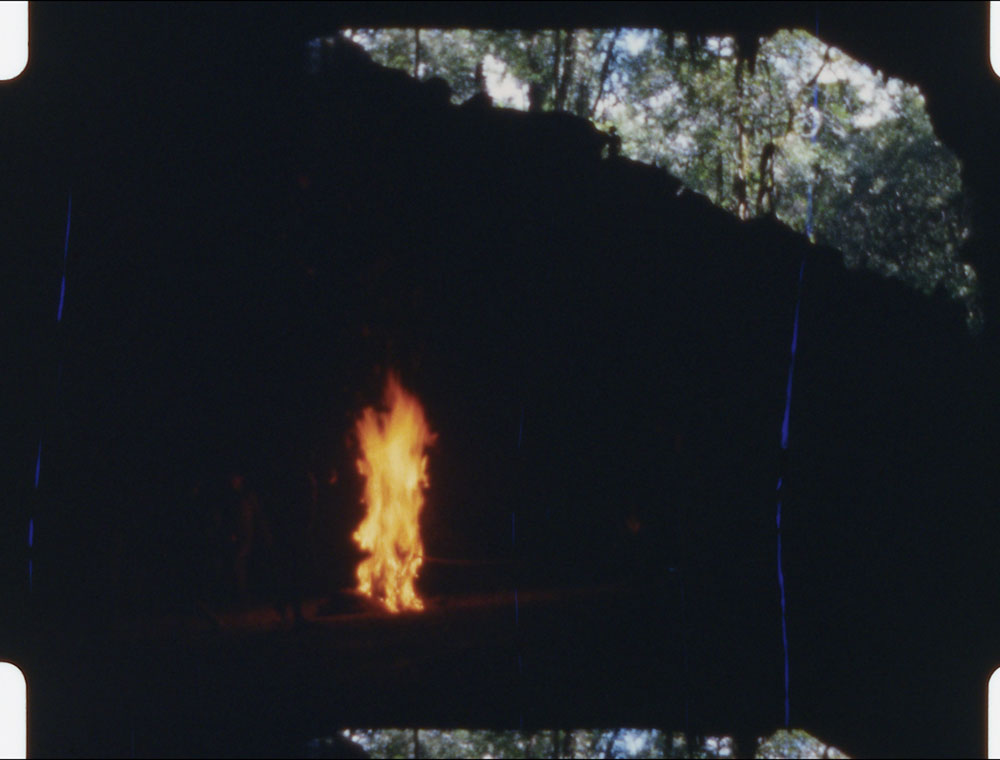
Next, I saw (or, more accurately, heard) Ernst Karel and Veronika Kusumaryati’s Expedition Content, an archival doc about a 1961 anthropological expedition to Papua (then known as Netherlands New Guinea) that included a 23-year-old Michael Rockefeller. While there, the team made an ethnographic film (with all of that term’s sinister implications) called Dead Birds, for which Rockefeller acted as sound recordist. Expedition Content is compiled from Rockefeller’s incidental off-screen recordings, which combine to create a portrait of the documentary crew that reveals both the affectionate relationships they developed with some of the indigenous people they stayed with — including Rockefeller picking up a truly impressive amount of their language — and their arrogance as wealthy, white Ivy Leaguers exploring a “savage” corner of the globe. The screen is dark for a vast majority of the time, with occasional flashes of blue meant — according to co-director Kusumaryati — to periodically wake people up in the dark theater. I have to admit that this technique worked on me.
In the afternoon, I saw Jessica Kingdon’s fantastic observational doc Ascension (pictured at top), which, fortunately for everyone, will see a broader theatrical release on October 8. It’s a portrait of work in contemporary China; not just manufacturing work, although that’s a big a part of it, but also things like butler school, which trains future servants for the growing class of China’s increasingly Westernized ultra-wealthy, and bodyguard school, which provides personal security for exactly the same class of people. There’s a sad consistency to the effect that work has on people, in China or elsewhere. In the more repetitive jobs, like manufacturing, they become extensions of the machines they’re stationed at, their eyes glassy as they move their bodies in a tightly circumscribed way. In the jobs that involve some cognitive work and adaptive skill, like the customer service positions, the workers become pavlovian automata, responding to clients’ needs with a restricted repertoire of appropriate reactions. One moment of reprieve comes in the form of a glimpse into a workshop producing uncannily lifelike (if also absurdly busty and saucer-eyed) sex dolls. Each doll appears to be unique, as a worker patiently applies dyes in tiny dabs to create convincing lips and areolae. In terms of craftsmanship, these dolls are works of art — however trite their beauty standards might be.
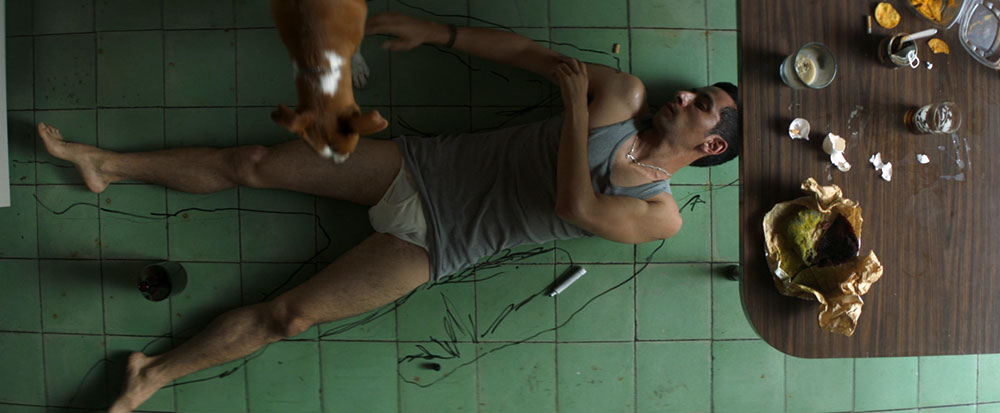
I started the following day with Archipelago, a Quebecois filmmaker’s rather associative and loosely conceived meditation on the history of that region. Using beautiful animation techniques, Félix Dufour-Laperrière explores facets of Quebec’s colonial history, relying for some semblance of structure on an archival mid-20th-century French travelogue film extolling the province’s natural beauty, quaint traditions, and sublime churches. Afterwards I saw Lake Forest Park, another beautiful and meditative but equally thesis-less film. Shot on luminous 16mm film, it’s a series of tableaus depicting high school students in a Seattle suburb in the aftermath of a classmate’s gun-related death. We don’t learn a whole lot about the backstory or about how the subjects are feeling, ending up instead with an atmospheric portrait of these teens’ affective environment. In the evening I saw the glossy and moderately provocative Netflix documentary A Cop Movie, which follows two Mexico City cops as they endure grueling shifts peppered with harrowing experiences on the city’s mean streets — or so it seems. As this doc will soon be available to stream, I’ll (uncharacteristically) respect the ban on spoilers and leave it at that. But I will say that halfway through the film there is a jarring tonal and formal shift that achieves the rare effect of forcing you to completely reevaluate your experience of the film’s first hour.
Camden is an intimate festival run by a group of people endowed with an enviably uncontrived faith in the documentary medium’s transformative power. For that reason, I’ll keep going back again and again, even during an ongoing global pandemic.
